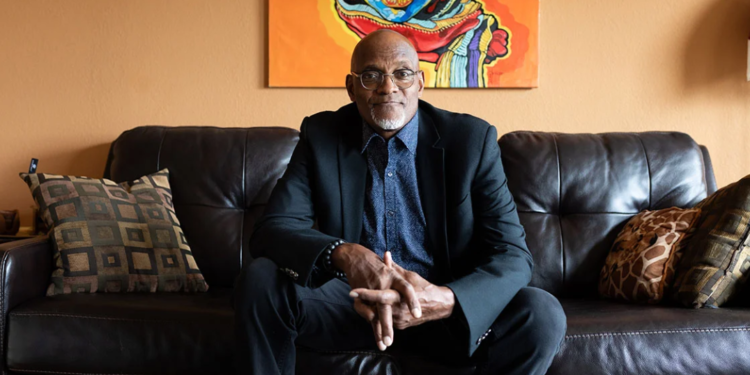Oct 18, 2024 Story by: Editor
Black men are actively engaged in their health and devote significant effort to maintaining their well-being, according to a landmark survey of Black Californians. The 2022 report, Listening to Black Californians, revealed that Black men in California highly value health care and often go to great lengths to access it. Despite the stereotype that Black men are disengaged from their health care, the data shows they are proactive in managing both their own health and that of their families.
This report challenges the prevailing notion that Black men are detached from their health providers. While Black men experience higher rates of chronic diseases compared to White men—a disparity often attributed to systemic racism and economic barriers—the idea that they are not active in their health care is inaccurate. According to the report, “Black men are more actively engaged in maintaining or improving the physical and mental health of themselves and their families than is generally recognized.”
The study, conducted by the California Health Care Foundation in collaboration with public opinion research firm Evitarus, surveyed 3,325 Black Californians, held 18 focus groups, and conducted 100 in-depth interviews. It painted a more comprehensive and nuanced picture of how Black men approach their health care. Key findings include that 92% of Black men have health insurance, 88% have seen a doctor in the past year, and 70% keep up with preventive care measures. Additionally, 78% of respondents said they put significant effort into reducing stress, and 77% said they engage in activities like yoga, meditation, or prayer to maintain their mental health.
Primary Caregiver Roles
The report also highlights how Black men frequently play central roles in caregiving within their families. Among Black households, 54% reported having a family member with a chronic illness like diabetes or cancer, and 30% reported a family member with a mental health condition. A Black man from Sacramento shared, “I’m the primary caregiver for [my wife who had a stroke]. It’s certain things that I’m committed to make happen that she would do for me.”
The emotional and physical toll of caregiving is often underreported, which may explain why these roles are not more widely recognized. The demanding nature of caregiving often leads many men to keep these responsibilities private.
Advocacy in Health Care
Another significant finding of the study is the advocacy role Black men take on in navigating the healthcare system. It found that 81% of respondents put considerable effort into discussing health concerns with their doctors, even if not prompted. A 72-year-old respondent from San Francisco noted, “Sometimes you’d be surprised you can get what you want… but a lot of folks are afraid. And so, they don’t ask.”
Role Models in the Community
Gregory Hodge, a 63-year-old attorney and nonprofit leader from Oakland, exemplifies how Black men take on multiple roles as health advocates within their families and communities. Hodge manages the health care of his family, ensuring his children receive regular checkups and follow a health-conscious lifestyle. When his mother in Arkansas was diagnosed with Parkinson’s disease, Hodge coordinated her care from California, ensuring her medical needs were met.
Hodge’s health advocacy extends beyond his immediate family. After his son suffered a near-fatal motorcycle accident, Hodge worked tirelessly to ensure he received the necessary care and therapy. Reflecting on the stressful experience, Hodge said, “It took a lot of time and effort to get his care right. It caused a lot of stress for me and the family,” prompting him to take up jogging and meditation.
Hodge’s dedication mirrors the experiences of many Black men, who, across various professions, are deeply involved in both their own health and the health of their families. For Hodge, success means “independence, security, purpose, a strong social network, a good diet, hobbies, freedom from chronic illness.” He strives to model these values for his children, leading by example in maintaining a healthy lifestyle.
The Personal Costs of Caregiving
While Black men like Hodge embrace these roles, the burdens of caregiving and navigating the complexities of the health care system are not without personal costs. Hodge himself experienced a mild stroke while balancing his work and caregiving responsibilities. Fortunately, he recovered and continues to focus on his health, with plans to take up surfing. His family remains a source of support, just as he has always been there for them. Source: CHCF
















